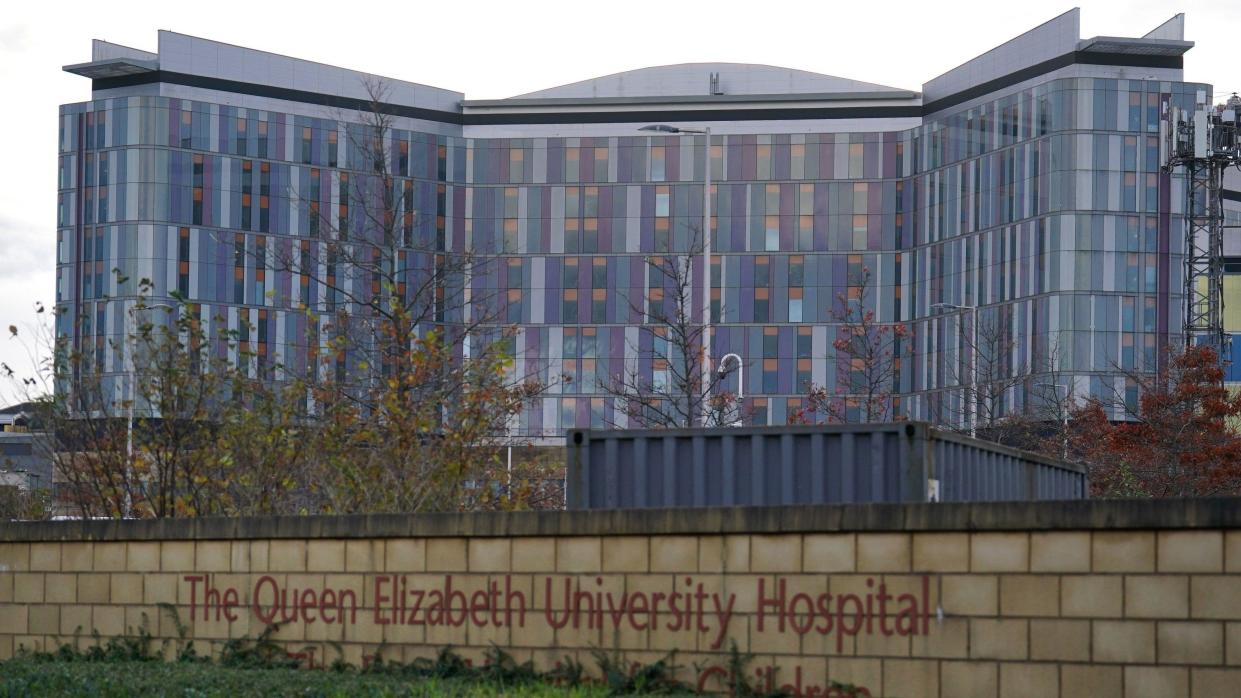Staff 'anxious' for child cancer patients - inquiry

A former infection control nurse has told the Scottish Hospitals Inquiry that staff at Glasgow's children's hospital felt "extreme anxiety" that child cancer patients were unsafe.
The child cancer wards at the Royal Hospital for Children were closed in 2018 following an infection outbreak, with patients moved to the adult hospital.
The inquiry is investigating the construction of the £870m Queen Elizabeth University Hospital (QEUH) campus in Glasgow, which includes the Royal Hospital for Children.
It was set up after a number of patient deaths including that of 10-year-old cancer patient Milly Main.
Susan Dodd was the lead paediatric infection control nurse from March 2017 to August 2019. She said she first raised concerns with senior managers about unusual infections shortly after starting in the post.
She said a series of Incident Management Team (IMT) meetings took place in September 2018. These were called to discuss the potential move of child cancer patients in wards 2A & 2B to ward 6A in the adult hospital following an infection outbreak.
She described at the time finding "very black, slimy grime" from drains creeping into the sinks in child cancer wards. She said doctors and nursing staff were distressed about the move
"They didn't feel patients were safe anymore and they didn't feel assured patients were safe, that was being conveyed quite clearly by the staff," she said.
Ms Dodd said an extensive amount of work took place to clean drains and vents in ward 6A in preparation for vulnerable patients.
"In terms of it being absolutely safe, I was nervous. I knew there were problems with the water, we were now seeing problems with the drains, I didn't really feel assured about anything in terms of the building to be honest.” she added.
Ms Dodd said "taking account of everything that we considered" she thought the ward move was the best option.
The inquiry heard that in 2019, a year after the child cancer wards closed, infections continued to be detected but with controls in place for the water and drains, staff were "struggling to think where this was coming from".
Pigeon infestations
Previously, the inquiry heard how pest control had been called out hundreds of times to manage feral pigeons in walkways, plantrooms and ledges.
Ms Dodd was asked by senior counsel to the inquiry, Fred Mackintosh KC, if she was aware of pigeon infestations. She said she was aware of incidents affecting the playground situated on the roof of the children’s hospital.
“The birds used to often get caught up in the blades of the helicopter and the remains of these bird would land in the children’s playground and that resulted in the playground being closed quite a number of times to manage that situation,” she said.
She described this as "not very pleasant".
A 10-year-old boy and a 73-year-old woman died after contracting a cryptococcus infection, linked to pigeon droppings while being treated at the hospital.
The inquiry heard that three other patients had tested positive for the infection.
NHS Greater Glasgow and Clyde does not accept that three of the cases are associated with the hospital, nor that there was any causal link between cryptococcus neoformans infections and the presence of pigeon excrement at the hospital.
The inquiry will continue to hear evidence on Friday.






